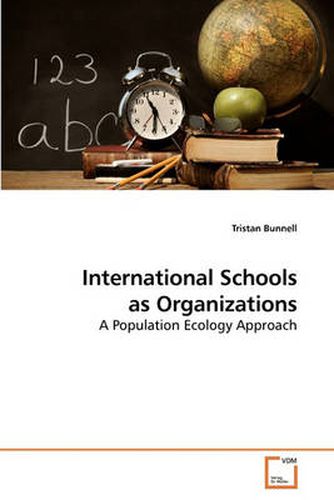Readings Newsletter
Become a Readings Member to make your shopping experience even easier.
Sign in or sign up for free!
You’re not far away from qualifying for FREE standard shipping within Australia
You’ve qualified for FREE standard shipping within Australia
The cart is loading…






This title is printed to order. This book may have been self-published. If so, we cannot guarantee the quality of the content. In the main most books will have gone through the editing process however some may not. We therefore suggest that you be aware of this before ordering this book. If in doubt check either the author or publisher’s details as we are unable to accept any returns unless they are faulty. Please contact us if you have any questions.
The diverse body of educational institutions termed ‘international schools’ have grown enormously in number and profile over the past four decades yet have received little attention as ‘organizations’. This book is based upon research exploring the broad area of public relations activity. In particular, the organizational culture of ‘informality’ and ‘isolation’ was investigated, as a possible distinct feature. The conclusion drawn was that international schools in the main display a strong Anglo-American organizational culture characterized by high levels of individuality and freedom, coupled with a ‘family culture’ more normally found in Japanese organizations. This book offers a retrospective analysis, asserting that international schools can be viewed as a ‘flexible’ and ‘functional’ type of organization. From a population ecology perspective, they appear to be a ‘strong species’, with a high survival rate, and an ability to adapt to changing economic and political environments. This book will be of interest to career international educators, administrators, and all other personnel interested in the sustainable governance of this type of school.
$9.00 standard shipping within Australia
FREE standard shipping within Australia for orders over $100.00
Express & International shipping calculated at checkout
This title is printed to order. This book may have been self-published. If so, we cannot guarantee the quality of the content. In the main most books will have gone through the editing process however some may not. We therefore suggest that you be aware of this before ordering this book. If in doubt check either the author or publisher’s details as we are unable to accept any returns unless they are faulty. Please contact us if you have any questions.
The diverse body of educational institutions termed ‘international schools’ have grown enormously in number and profile over the past four decades yet have received little attention as ‘organizations’. This book is based upon research exploring the broad area of public relations activity. In particular, the organizational culture of ‘informality’ and ‘isolation’ was investigated, as a possible distinct feature. The conclusion drawn was that international schools in the main display a strong Anglo-American organizational culture characterized by high levels of individuality and freedom, coupled with a ‘family culture’ more normally found in Japanese organizations. This book offers a retrospective analysis, asserting that international schools can be viewed as a ‘flexible’ and ‘functional’ type of organization. From a population ecology perspective, they appear to be a ‘strong species’, with a high survival rate, and an ability to adapt to changing economic and political environments. This book will be of interest to career international educators, administrators, and all other personnel interested in the sustainable governance of this type of school.